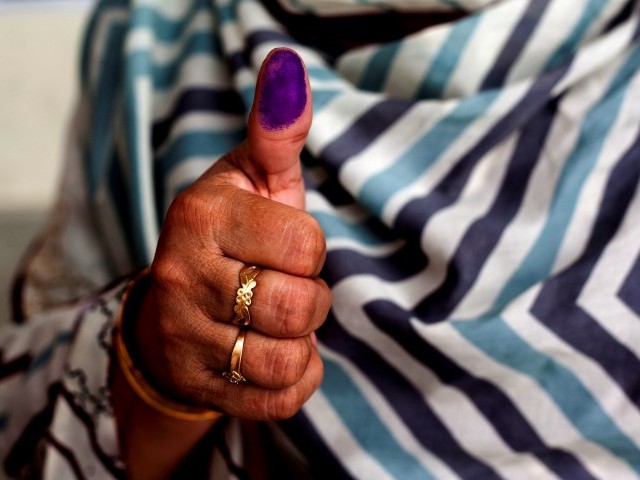After a 22 year political career, former cricket legend Imran Khan is set to become the Prime Minister of Pakistan, the world’s sixth most populated nation.
Twenty-eight seats short of a majority, the election marred with controversy and claims of vote-rigging will see Khan forging alliances with other, smaller parties, to form a government.
Leading up to the elections, there were ten suicide attacks at various polling stations in an effort to destabilize the electoral process. Yet, this didn’t stop swathes of the population heading out of their homes to cast their votes, with the internet replete with photos of people’s thumbs covered in the fingerprint magenta.
“I want to describe the kind of Pakistan I want to see… look, my inspiration is the Prophet Muhammad, the city of Madinah that he founded, how it was based on humanity. For the first time, the state was formed based on humanitarianism. This is my inspiration, that Pakistan should have that kind of humanitarian state, where we take responsibility for our weaker classes,” Khan said during his victory speech.
An admirable goal to achieve, but one which will be difficult to deliver, given that the city state of Madinah was not only multi-faith where minorities were given rights, protected by Prophet Muhammad (peace be upon him) himself, but the scale of nations is different: at most tens of thousands in Madinah at the time of Prophet Muhammad, to over 200 million in Pakistan today; 200 million was also the overall global population 1,400 years ago.
In an effort to bring the country together on a common cause, Khan spoke of the Islamic value of forgiveness.
“I want all of Pakistan to unite. I want to make it clear that anyone who was against us, who voted against us, I think the kind of personal attacks that I have seen, no one has seen those, but I have forgotten all of those, they are behind me… My cause is far bigger.”
Khan carried on the theme of accountability stressed in Islamic jurisprudence.
“Accountability will start with me, then my ministers, and then it will go from there. We will set an example of how the law is the same for everyone. If the West is ahead of us today, it is because their laws are not discriminatory… this will be our biggest guiding principle.”

Change
One candidate, a human right lawyer who refused to state his religion, Jibran Nasir, adopted this principle saying “Our campaign is bigger than just my win… What it is symbolizing for the people is a change in narrative, that challenging extremists is possible… not using religion to get votes is possible.” Nasir who came fifth in his area is contesting the election results.
Khan’s speech was positive, “We want to learn from China how they brought 700 million people out of poverty.. The other thing we can learn from China is… The measures they have taken against corruption, how they have arrested more than 400 ministers there.”
Pakistan is plagued by corruption at every level, it is so normalized that it is carried out shamelessly. Addressing and overcoming corruption will be one of the biggest challenges Khan will face as he is going against the status quo, seeking a better system of life for all.
Khan’s biggest challenge will be to address and overcome negative attitudes towards India – which has just as many Muslims as Pakistan.
“On India: I was saddened in the last few days, how the media in India portrayed me as a Bollywood villain. It seemed like India feared everything bad would happen if Imran Khan came to power. I am the Pakistani who has the most familiarity with India, I have been all over that country. I think it will be very good for all of us if we have good relations with India,” he said.
“We need to have trade ties, and the more we will trade, both countries will benefit… If India’s leadership is ready, we are ready to improve ties with India. If you step forward one step, we will take two steps forward. I say this with conviction, this will be the most important thing for the subcontinent, for both countries to have a friendship.”
After forming a government, Khan has the complicated task of reshaping and redefining a nation, challenging attitudes of tradition, tribal allegiances and anger both internally as well as externally.
He has to challenge a narrative of normalized corruption, tax evasion, and redistribute resources to benefit the wider population lifting everyone up. Much of what he has outlined is idealistic and ambitious, but it courts the attention of his children’s mother:
“22 years later, after humiliations, hurdles, and sacrifices, my sons’ father is Pakistan’s next PM. It’s an incredible lesson in tenacity, belief, and refusal to accept defeat. The challenge now is to remember why he entered politics in the 1st place. Congratulations @ImranKhanPTI”
22 years later, after humiliations, hurdles and sacrifices, my sons’ father is Pakistan’s next PM. It’s an incredible lesson in tenacity, belief & refusal to accept defeat. The challenge now is to remember why he entered politics in the 1st place. Congratulations @ImranKhanPTI
— Jemima Goldsmith (@Jemima_Khan) July 26, 2018
If Khan can get the support of his ex-wife, Jemima Goldsmith, then perhaps he can gather the support of his fellow Pakistani citizens and bring the better values of faith – such as fairness, justice, and accountability – to improve his nation.
Pakistan Demands #JusticeforZainab, 7-Year-Old Murder Victim